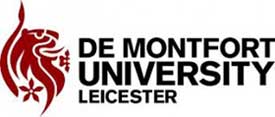About Finance And Investment Bsc (hons) in De Montfort University
The Finance and Investment BSc at DMU provides a rigorous academic approach to finance with a focus on practical skills and employability. Students will be equipped with the advanced technical skillset, knowledge, and professional attitude necessary to excel in a career in the financial sector.
On this course, a comprehensive understanding of finance is developed through exploration of the connected disciplines of accounting and economics. This programme is ideal for those interested in a mathematical approach, where strong emphasis is placed on quantitative data. The use of important industry-standard commercial databases and software, such as Bloomberg, Thomson Reuters Eikon, Matlab, and Python, are integrated into the teaching methods to bridge the theoretical and practical aspects of finance.
Innovative modules will introduce you to new methodologies – such as Artificial Intelligence and Financial Applications, where you will gain hands-on experience of using, evaluating, and even developing your own AI applications, to solve real-life problems.
Our Trading Room – one of the largest in a UK university – will give you a simulated experience on industry-standard software that is used by decision-makers in practice. The programme is also structured to address many of the competence requirements of professional finance bodies
Key features
Entry criteria
English language
If English is not your first language then an IELTS score of 6.0 overall with a minimum of 5.5 in each component (or equivalent) is essential.
English Language tuition, delivered by our British Council accredited Centre for English Language Learning, is available both before and throughout the course if you need it.
De Montfort University Highlights
| Type of Institution |
Public |
| Campus Setting |
Urban |
| Endowment |
£1.17 million |
| Number of Campuses |
4 faculties |
| Number/Percentage of International Students |
23205 |
| Total number of Professors |
3240 |
| Student Satisfaction Rate |
86% |
| Graduate Job Rate |
97.3% |
| Number of Residence Vacancy |
Around 3000 |
| International fee |
Undergraduates- £13240 (annual) Postgraduates- £15950 (annual) |
| Number of Academic Programs |
UG, PG, Part time, distance, blended |
| Mode of Program |
Full time, distance and online |
| Average Graduate Salary |
19800 pounds a year |
De Montfort University The tuition fee (In GBP) for various programs is tabulated below:De Montfort University Average Cost
| Field of Study |
Avg.Fees |
| Art, Design and Humanities: |
£13,750 |
| Business and Law |
£13,750-£14,550 |
| Media |
£13,750 - £14,250 |
| Engineering |
£14,250 |
| Computing |
£14,250 |
| Health and Life Sciences |
£13,250 - £14,250 |
| Nursing BSc |
£14,950 |
De Montfort University The Average Tuition Fees and Other Expenses
| Expenses |
Estimated cost in pounds |
| Undergraduate tuition fee |
13,250- 14950 |
| Postgraduate tuition fee |
13600-15,900 |
| On campus accommodation |
5,000-6040 |
| Average cost of living |
97-110 per week |
DMU International Scholarship up to 1500 pounds
- TEF Gold Outstanding Alumni Scholarship up to 3000 pounds
- Leicester Castle Business School Scholarships:
- Global MBA Scholarship £3,000 - £5,000
- Full Postgraduate Scholarship
- LGBTQ + Allies Scholarship-two fully funded post graduate taught scholarship packages including full fee weaver and maintenance bursary.
- Vice Chancellor's Sports Scholarship- three different scholarship packages are available with eligible students being awarded up to 6000 pounds of support.
